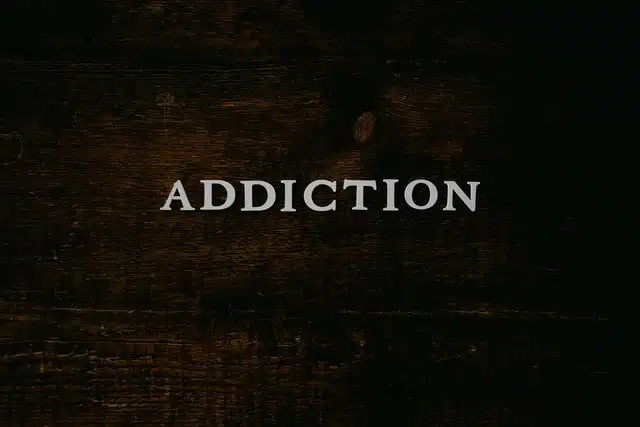Married To An Addict: 8 Triggers, Types and Treatments

Supporting Your Spouse: Navigating the Complex Journey of Addiction and Recovery Together
Addiction 13th Apr, 2023
Being married to an addict poses significant challenges that can strain even the strongest of relationships. As addiction infiltrates every aspect of life, it can cause emotional turmoil, and financial distress, and erode trust between partners.
With the prevalence of addiction growing at an alarming rate, it is crucial for spouses to understand the triggers, types, and treatments of addiction. Armed with this knowledge, they can better support their loved ones through the challenging journey to recovery.

By fostering a compassionate and understanding environment, spouses can stand by their partners, helping them to overcome their addiction and ultimately heal their relationship for a brighter, healthier future together.
Understanding Addiction
Understanding addiction is the first step toward helping a loved one who is struggling with it. Let’s dive deeper into what addiction is and the different forms it can take.
Addiction is a complex brain disorder characterized by compulsive engagement in rewarding stimuli despite adverse consequences. It usually involves a loss of control, strong cravings, and continued use of a substance or engagement in a behavior despite negative outcomes.
Addictions come in various forms, impacting people in different ways. Here’s a table to help you visualize some common types of addiction:
| Type of Addiction | Description |
|---|---|
| Substance Abuse | The misuse of legal or illegal drugs leads to physical and mental health issues. |
| Alcohol | The excessive and compulsive consumption of alcoholic beverages, results in physical dependence and social problems. |
| Gambling | An uncontrollable urge to engage in gambling activities causes financial and personal life disturbances. |
| Sex | Compulsive sexual thoughts and behaviors, cause significant distress and negatively affect relationships. |
| Food | An unhealthy relationship with food leads to compulsive overeating or extreme dietary restrictions. |
| Internet | Excessive use of the internet, results in social isolation, sleep disturbances, and other negative consequences. |
| Shopping | Uncontrollable spending often leads to financial and relationship problems. |
| Work | An unhealthy obsession with work leads to physical and emotional exhaustion and neglect of personal relationships. |
According to data from the National Survey on Drug Use and Health, addiction is a widespread issue in the United States. In 2015, an estimated 27.1 million Americans aged 12 or older were currently using illicit drugs, and 138.3 million Americans reported current use of alcohol. Furthermore, 22.2 million people reported using marijuana, and 5.9 million adults used psychotherapeutic drugs for non-medical reasons.
By understanding the nature of addiction and its prevalence, we can better empathize with those facing these challenges and support them in their journey toward recovery.
Identifying the Triggers of Addiction
Continuing our exploration of addiction, it’s essential to recognize the triggers that can lead someone down the path of addictive behavior. Identifying these triggers is crucial for preventing relapses and ensuring a successful recovery.
Emotional triggers
Emotional triggers play a significant role in the development of addiction. Factors like stress, trauma, and unresolved emotional issues can lead to a person seeking comfort or escape through addictive substances or behaviors. It’s crucial to address these emotional triggers through therapy, support groups, or other means to mitigate their impact on the individual’s recovery process.
Environmental triggers
Environmental factors can also contribute to addiction. Exposure to addictive substances, social situations that encourage substance use, or even living in a neighborhood where drug use is prevalent can all serve as triggers for addiction. Creating a safe and supportive environment, away from these influences, can be a critical component in the recovery process.
Genetic predisposition and family history
Finally, genetic predisposition and family history can play a role in addiction. Research shows that some individuals may be more susceptible to developing an addiction due to genetic factors. Additionally, growing up in a family where addiction is present can also increase the likelihood of developing an addiction later in life.
Understanding one’s genetic and family history can help individuals and their support networks take the necessary precautions to prevent or address addictive behaviors.
By identifying and addressing these triggers, we can help those struggling with addiction navigate their way toward a healthier, addiction-free life.
The Impact of Addiction on Marriage
Moving forward, let’s examine the profound impact addiction can have on a marriage, affecting various aspects of the relationship and the lives of both partners.
Emotional toll on both partners
Addiction can take a heavy emotional toll on both individuals in a marriage. The partner struggling with addiction may experience guilt, shame, and low self-esteem, while the other partner may feel overwhelmed, helpless, and frustrated. The emotional stress of dealing with addiction can lead to feelings of isolation, depression, and anxiety for both parties, further straining the relationship.
Financial difficulties
The financial burden of addiction can also cause significant stress within a marriage. The costs associated with substance abuse, gambling, or other addictive behaviors can lead to mounting debts, unpaid bills, and financial instability. This added pressure can exacerbate existing marital issues and create further tension between partners.
Trust and communication issues
Trust and communication are critical aspects of any healthy relationship. However, addiction often breeds dishonesty, secrecy, and deception, eroding trust between partners. Communication may break down as the addicted partner becomes increasingly defensive or withdrawn, while the other partner may feel ignored or shut out. Rebuilding trust and reestablishing open communication is essential for a marriage to recover from addiction.
Legal conflicts over child custody, drunk driving, or illicit drug use
Addiction can also lead to various legal issues that can further strain a marriage. Some of these conflicts may include:
Child custody disputes
When addiction is present, the well-being and safety of children become a primary concern. Child custody disputes may arise if one partner believes the other is unfit to care for the children due to their addiction, potentially leading to contentious legal battles.
Drunk driving incidents
Driving under the influence of alcohol or drugs poses a significant risk to the addicted individual, their family, and others on the road. Legal consequences for drunk driving, such as fines, license suspension, or even jail time, can put additional stress on a marriage.
Illicit drug use
The use of illegal drugs can lead to criminal charges, fines, and even incarceration. The legal ramifications of illicit drug use can jeopardize a family’s stability and create further barriers to repairing the marriage.
Understanding the various ways addiction impacts a marriage is crucial for both partners to work together toward healing and recovery.
Recognizing Signs of Addiction in Your Spouse
Recognizing the signs of addiction in your spouse is a crucial step in providing support and encouraging them to seek help. Being aware of these indicators can help you identify when your partner may be struggling and take appropriate action. Some common signs of addiction include:
| Behavioral Changes | Physical Symptoms | Social Withdrawal |
|---|---|---|
| Mood swings | Changes in appearance | Isolation from others |
| Secrecy | Weight loss or gain | Decline in social activities |
| Loss of motivation | Poor hygiene | Withdrawal from family and friends |
| Increased irritability | Sleep disturbances | Neglecting responsibilities |
These signs can manifest in various ways, but a combination of behavioral changes, physical symptoms, and social withdrawal can indicate that your spouse may be dealing with an addiction. It’s essential to approach the situation with understanding and empathy, as confronting your partner in a non-judgmental and supportive manner can make a significant difference in their willingness to seek help and work towards recovery.
Approaching Your Spouse About Their Addiction
Approaching your spouse about their addiction can be a challenging and emotionally charged conversation. However, addressing the issue is a vital step in helping your partner seek the help they need. To increase the likelihood of a productive and supportive conversation, consider the following tips:
- Choosing the right time and setting: Select a moment when your spouse is sober and clear-headed, and ensure that the environment is calm, private, and free from distractions. This will allow for a more focused and meaningful discussion.
- Communicating your concerns effectively and empathetically: Use “I” statements to express your feelings and concerns without sounding accusatory. For example, “I feel worried when I see you drinking excessively” instead of “You’re always drinking too much.” This approach helps create an open and non-threatening dialogue.
- Avoiding blame and accusation: Keep in mind that addiction is a complex issue with various contributing factors. Avoid casting blame or making accusations, as this can make your spouse defensive and less receptive to your concerns. Focus on the impact of their addiction on your relationship and express your desire to support them in seeking help and working towards recovery.
By following these guidelines, you can foster an open and honest conversation with your spouse about their addiction, emphasizing your love and support as they embark on the journey toward recovery.
Supporting Your Spouse’s Recovery
As you navigate through the difficult conversation about your spouse’s addiction, it’s essential to shift the focus towards recovery and how you can support them in this journey. There are several ways in which you can actively contribute to your spouse’s recovery process:
- Encouraging professional help: Gently suggest that your spouse consider seeking professional help in the form of therapy, support groups, or rehabilitation programs. Offer to research options and accompany them to appointments if they’re open to it.
- Creating a supportive environment at home: Foster a positive and encouraging atmosphere by eliminating triggers for substance use, engaging in healthy activities together, and reinforcing the importance of open communication in your relationship.
- Setting boundaries and practicing self-care: While it’s crucial to support your spouse, remember that your well-being is equally important. Establish clear boundaries to protect your mental and emotional health, and make sure to take time for self-care activities.
Remember that being married to an addict in recovery is a process that requires time, patience, and understanding from both partners. As you face these challenges together, the bond between you and your spouse can grow stronger, leading to a healthier and more fulfilling relationship.
Treatment Options for Addiction
When it comes to treating addiction, there are various options available to suit the unique needs and circumstances of each individual. Some of the most common treatment options include:

- Inpatient rehabilitation: This intensive form of treatment involves the individual staying at a specialized facility for an extended period, where they receive around-the-clock care and support to overcome their addiction.
- Outpatient treatment programs: These programs offer flexibility, allowing individuals to attend therapy sessions and support group meetings while maintaining their daily responsibilities. They provide a structured environment for those who don’t require the intensity of inpatient care.
- Cognitive Behavioral Therapy (CBT): CBT is a widely-used therapeutic approach that helps individuals identify and change negative thought patterns and behaviors contributing to their addiction. Through CBT, individuals develop healthier coping mechanisms and relapse prevention strategies.
- Medication-assisted treatment (MAT): In some cases, medications may be prescribed to help manage withdrawal symptoms and cravings, making it easier for individuals to focus on their recovery. MAT is typically combined with therapy and support groups for a comprehensive approach.
- Alternative therapies: These therapies can complement traditional treatment methods, focusing on the whole person, and may include holistic treatments, mindfulness practices, and other integrative approaches to promote overall well-being.
Ultimately, the most effective treatment plan will be tailored to the individual’s needs, taking into account the severity of the addiction, personal preferences, and any co-occurring mental health disorders. It is crucial to consult with a professional to determine the most suitable treatment options for your spouse.
Rebuilding Your Marriage After Addiction Recovery
Rebuilding your marriage after addiction recovery is a process that requires patience, dedication, and mutual understanding. It is essential to focus on restoring trust and open communication between both partners, as these are the cornerstones of a healthy relationship.
Strengthening your emotional connection by spending quality time together, engaging in shared activities, and expressing love and support can help repair the bond that addiction may have weakened.
Seeking couples therapy or joining support groups specifically designed for couples affected by addiction can provide valuable guidance and assistance in navigating the challenges of rebuilding your relationship. These resources can help address issues such as codependency, communication barriers, and establishing healthy boundaries.
It’s crucial to address potential issues of abuse or conflict that may have arisen during the addiction. The American Association for Marriage and Family Therapy highlights the cycle of conflict that can occur in relationships affected by substance abuse, leading to further disagreements and a breakdown in trust.
By recognizing and addressing these issues, couples can work towards breaking the cycle of conflict and fostering a healthier, more supportive environment for both partners on their journey to recovery and relationship renewal.
Why You Can Stay Married to an Addict
Staying married to an addict can be challenging, but with the right approach, it is possible to navigate through these difficulties. Implementing a safety plan when married to an addict is crucial to ensure the well-being of both partners and any children involved.
Acknowledge that spouses feel lonely when married to an addict, and it’s important for both partners to seek support from friends, family, or support groups to alleviate feelings of isolation. Learning how to be happy married to an addict involves focusing on the positive aspects of your relationship, practicing forgiveness, and understanding the struggles your spouse is going through.
By emphasizing open communication, and empathy, and celebrating small victories in recovery, you can work together to build a healthier and happier marriage.
The Bottom Line
Understanding the triggers, types, and treatments of addiction is crucial in order to effectively support a spouse on their journey towards recovery. By comprehending the various factors that contribute to addiction, partners can provide empathetic assistance and create a supportive environment at home.
Both individual and couples therapy plays a vital role in addressing the challenges brought on by addiction and fostering healthier communication and trust within the relationship. Self-care is equally important, as it ensures that both partners maintain their well-being while navigating the complexities of recovery. A comprehensive understanding of addiction and its various aspects, combined with professional help and self-care, can lay a strong foundation for a successful recovery journey and a restored healthy marriage.
Key Takeaways
- Understanding addiction: Familiarize yourself with the definition, common types, and prevalence of addiction in the United States.
- Identifying triggers: Recognize emotional, environmental, and genetic factors that can contribute to addiction.
- Impact on marriage: Be aware of the emotional, financial, and legal consequences of addiction on your relationship.
- Recognizing signs: Observe behavioral changes, physical symptoms, and social withdrawal as potential indicators of addiction in your spouse.
- Approaching your spouse: Choose the right time and setting, communicate empathetically, and avoid blame when discussing their addiction.
- Supporting recovery: Encourage professional help, create a supportive home environment, and establish boundaries while practicing self-care.
- Treatment options: Explore various treatment options, including inpatient rehabilitation, outpatient programs, Cognitive Behavioral Therapy (CBT), Medication-assisted treatment (MAT), and alternative therapies.
- Rebuilding your marriage: Focus on restoring trust, strengthening emotional connections, seeking couples therapy or support groups, and addressing potential abuse or conflict issues.
- Importance of self-care: Prioritize your own well-being as you support your spouse through their recovery journey.
















